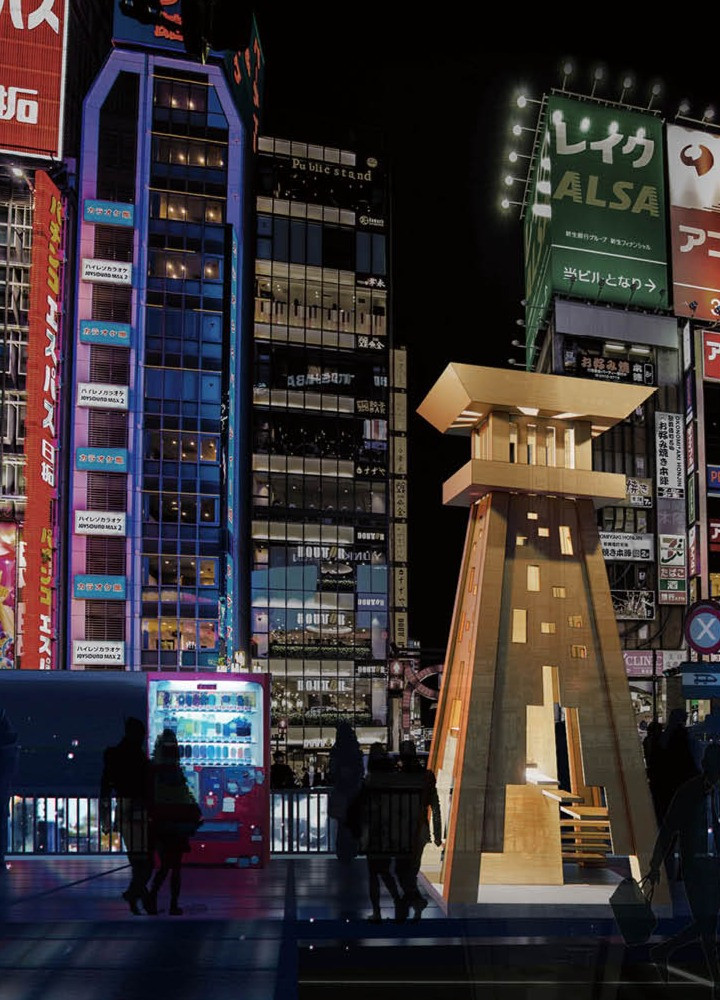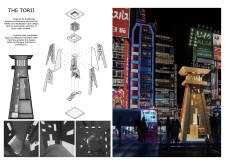5 key facts about this project
The Torii meditation cabin is located in a busy urban area, designed as a peaceful space for reflection and rest. Inspired by the traditional Japanese Torii gate, it combines cultural elements with modern design. The goal is to create a retreat amidst the fast-paced lifestyle of the city, focusing on the calming effects that thoughtful architecture can provide.
Concept and Elevation
The main idea behind the design is to elevate the meditation space above the ground. This lift serves to separate the cabin from the noise and distractions of the urban environment below. By creating an enclosed room that is physically removed from the hustle outside, users can focus on mindfulness and find a moment of quiet in their busy lives.
Formal Characteristics
The shape of The Torii is characterized by its clean lines and minimal aesthetic. It reflects Japanese architectural principles while also meeting contemporary needs. This simplicity invites users to engage more deeply with the space, promoting a sense of calm and ease. The design encourages a straightforward experience that allows for contemplation and relaxation.
Material Considerations
While the presentation does not provide specific information about materials, it is reasonable to assume that options commonly found in Japanese architecture, such as wood and glass, may be included. These materials would support a strong connection to nature and enhance the peaceful mood intended for the meditation cabin.
Integration in Urban Context
The cabin is thoughtfully placed within the urban landscape, designed to fit comfortably in its environment rather than stand out dramatically. This careful integration highlights its function as a place for solitude, offering users a chance to step away from the busy life outside. The elevated structure allows for a fresh perspective of the city, making the experience of visiting the meditation cabin even more enriching.
Soft light filters through the structure, creating a warm and inviting atmosphere that guides visitors as they enter the space, allowing them to unwind and engage with their thoughts and surroundings.




















































